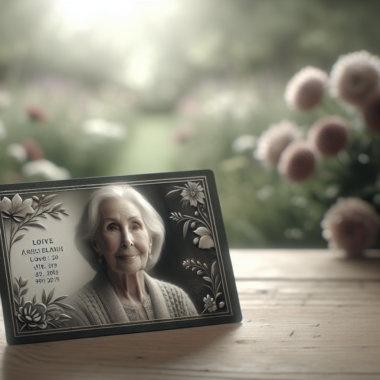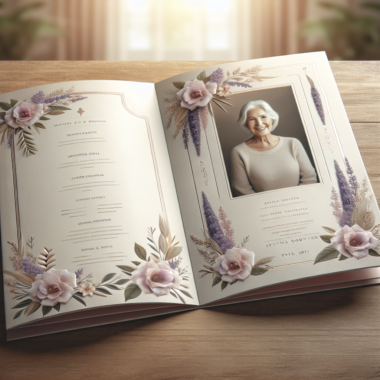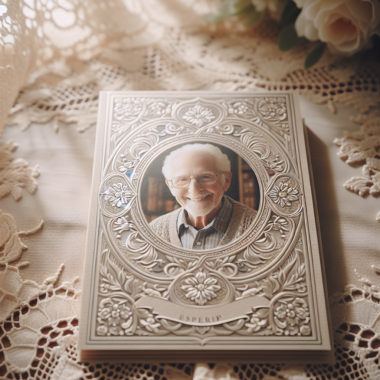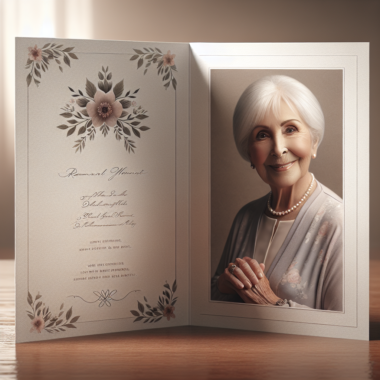Memorial cards are an important element in the mourning process and serve as a way to commemorate a deceased individual. These cards typically feature a photograph of the person who has passed away, along with their name, dates of birth and death, and a meaningful quotation or verse. They are commonly distributed at funeral services, memorial gatherings, or mailed to friends and family members who cannot attend in person.
Memorial cards function as a physical keepsake, allowing recipients to maintain a tangible connection to their departed loved one. In addition to their role in the grieving process, memorial cards celebrate the life and achievements of the deceased. They can be customized with unique designs, photographs, and messages that reflect the individual’s personality and impact on others.
These personalized cards often provide comfort to those in mourning by offering a physical link to the person they have lost. Furthermore, memorial cards can be preserved as cherished mementos, serving as enduring reminders of the influence the deceased had on the lives of their friends and family.
Key Takeaways
- Memorial cards serve as a tangible reminder of a loved one’s life and legacy, providing comfort and support to those who are grieving.
- When choosing a design for memorial cards, consider the personality and interests of the deceased, as well as the preferences of the family and friends who will receive them.
- Personalizing memorial cards with photos and meaningful messages can create a deeply personal and touching tribute to the departed.
- Selecting the best printing options for memorial cards, such as high-quality paper and professional printing services, can ensure a beautiful and lasting keepsake.
- Tips for creating a meaningful and lasting memorial card include choosing timeless designs, using high-resolution images, and carefully selecting heartfelt messages and quotes.
- Memorial cards can honor a loved one’s legacy by capturing their essence and sharing their impact on the lives of others.
- Sharing and distributing memorial cards to family and friends can provide a sense of connection and support during a difficult time, allowing loved ones to cherish and remember the departed together.
Choosing the Right Design for Memorial Cards
Popular Design Options
Some popular design options for memorial cards include religious symbols, nature scenes, or custom artwork that holds special meaning to the individual being honored.
Color Scheme and Typography
It’s essential to choose a design that resonates with the personality and spirit of the person who has passed away. In addition to the overall design, the color scheme and typography of the memorial card are crucial. The colors should be carefully selected to evoke a sense of peace and comfort, while the typography should be easy to read and convey a sense of reverence.
Size, Format, and Additional Elements
It’s also important to consider the size and format of the card, as well as any additional elements such as borders or embellishments. Ultimately, the design of the memorial card should be a reflection of the person being honored, providing a meaningful and lasting tribute to their memory.
Personalizing Memorial Cards with Photos and Messages

Personalizing memorial cards with photos and messages is a meaningful way to honor the memory of a loved one. Including a photo of the deceased on the card allows those who receive it to have a visual reminder of the person they have lost. The photo can capture a special moment or characteristic of the individual, serving as a cherished keepsake for family and friends.
In addition to a photo, memorial cards often include meaningful messages or quotes that reflect the personality and spirit of the person being honored. These messages can provide comfort and solace to those who are grieving, serving as a source of strength during a difficult time. When personalizing memorial cards, it’s important to consider the preferences and interests of the deceased.
For example, if the person had a love for nature, including a nature-themed design or quote may be particularly meaningful. Similarly, if the individual had a strong faith, incorporating religious symbols or verses may provide comfort to those who receive the card. Personalizing memorial cards with photos and messages allows for a unique and heartfelt tribute to the person being honored, providing a lasting reminder of their impact on the lives of others.
Selecting the Best Printing Options for Memorial Cards
| Printing Option | Pros | Cons |
|---|---|---|
| Digital Printing | Quick turnaround time | Limited paper options |
| Offset Printing | High-quality prints | Higher setup costs |
| Thermal Printing | Cost-effective for small batches | Not suitable for intricate designs |
| Screen Printing | Durable prints | Not ideal for full-color designs |
Selecting the best printing options for memorial cards is an important consideration when creating a lasting tribute to a loved one. There are several printing options available, each offering unique benefits and considerations. Digital printing is a popular choice for memorial cards, offering high-quality results at an affordable price.
This option allows for full-color printing and customization, making it easy to create personalized and meaningful cards. Offset printing is another option, offering precise color matching and high-quality results. This method is ideal for larger quantities of cards and provides a professional finish.
In addition to printing options, it’s important to consider paper quality and finish when creating memorial cards. Choosing a high-quality paper stock can enhance the overall look and feel of the card, providing a durable and elegant finished product. The finish of the card, whether matte or glossy, can also impact the final appearance and feel of the memorial card.
Ultimately, selecting the best printing options for memorial cards involves considering factors such as budget, quantity, customization options, and desired finish.
Tips for Creating a Meaningful and Lasting Memorial Card
Creating a meaningful and lasting memorial card involves careful consideration and attention to detail. When designing the card, it’s important to choose elements that reflect the personality and spirit of the person being honored. This may include selecting a design that holds special meaning to the individual, incorporating their favorite colors or symbols, or including a heartfelt message or quote that resonates with their life and legacy.
Additionally, personalizing the card with photos that capture special moments or characteristics of the deceased can provide comfort and solace to those who receive it. Another tip for creating a meaningful memorial card is to consider the preferences and interests of the deceased. Taking into account their hobbies, passions, or faith can help create a personalized tribute that reflects their unique personality.
It’s also important to consider the intended recipients of the card when creating a meaningful design, ensuring that it provides comfort and solace to those who are grieving. Ultimately, creating a meaningful and lasting memorial card involves thoughtful consideration of design elements, personalization options, and the unique qualities of the person being honored.
Honoring a Loved One’s Legacy with Memorial Cards

Celebrating Life and Impact
These cards provide an opportunity to celebrate the life and impact of the deceased, allowing family and friends to hold onto a tangible reminder of their presence. By personalizing memorial cards with photos, messages, and designs that reflect the individuality of the person being honored, it’s possible to create a heartfelt tribute that honors their legacy in a meaningful way.
Sharing Stories and Memories
In addition to honoring their legacy through design elements, memorial cards can also serve as a way to share stories and memories of the deceased. Including personal anecdotes or quotes that capture their spirit can provide comfort and solace to those who receive the card, allowing them to hold onto cherished memories of their loved one.
A Lasting Tribute to Comfort and Solace
By honoring a loved one’s legacy with memorial cards, it’s possible to create a lasting tribute that brings comfort and solace to those who are grieving while celebrating the impact that they had on the lives of others.
Sharing and Distributing Memorial Cards to Family and Friends
Sharing and distributing memorial cards to family and friends is an important part of honoring the memory of a loved one. These cards serve as a tangible reminder of the person who has passed away and provide comfort and solace to those who are mourning. They can be distributed at funerals, memorial services, or sent to family and friends who are unable to attend the service.
By sharing these cards with loved ones, it’s possible to provide them with a lasting memento that honors the memory of the deceased. In addition to distributing memorial cards at formal services, they can also be shared with extended family members, friends, and colleagues who may not have been able to attend. This allows for a wider circle of individuals to hold onto a tangible reminder of their loved one, providing comfort and solace during their time of grief.
By sharing and distributing memorial cards to family and friends, it’s possible to provide them with a meaningful keepsake that honors the memory and impact of the person they have lost. In conclusion, memorial cards play an essential role in honoring the memory of a loved one and providing comfort and solace to those who are grieving. By choosing the right design, personalizing with photos and messages, selecting the best printing options, creating meaningful tributes, honoring legacies, and sharing with family and friends, it’s possible to create lasting mementos that celebrate the life and impact of those who have passed away.
These cards serve as tangible reminders that allow individuals to hold onto cherished memories while finding comfort during their time of grief.
 Free Shipping Over $50
Free Shipping Over $50  888-432-8363
888-432-8363


 Obituary/Programs
Obituary/Programs No-Fold Memorial Programs
No-Fold Memorial Programs 4 Page Funeral Programs
4 Page Funeral Programs 8 Page Memorial Programs
8 Page Memorial Programs 12 Page Funeral Programs
12 Page Funeral Programs 16 Page Funeral Programs
16 Page Funeral Programs 20 Page Funeral Programs
20 Page Funeral Programs Tri-Fold Funeral Programs
Tri-Fold Funeral Programs Complete Memorial Packages
Complete Memorial Packages
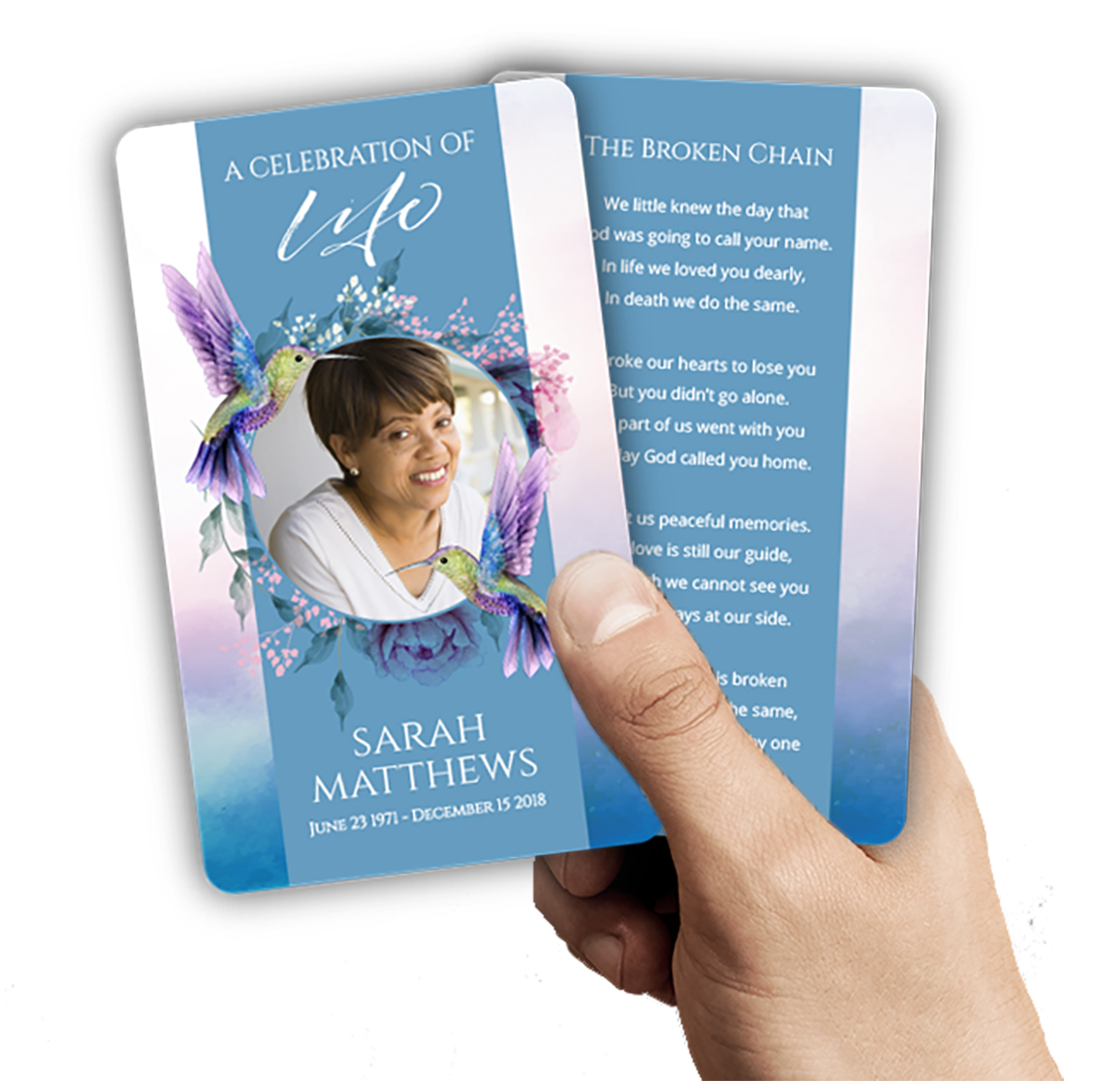 Cards & Bookmarks
Cards & Bookmarks Saint Prayer Cards
Saint Prayer Cards Folded Memorial Cards
Folded Memorial Cards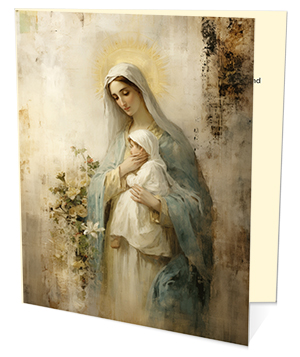 Folded Holy Cards
Folded Holy Cards Memorial Bookmarks
Memorial Bookmarks Thank You Cards
Thank You Cards Share-A-Memory Cards
Share-A-Memory Cards Memorial Magnets
Memorial Magnets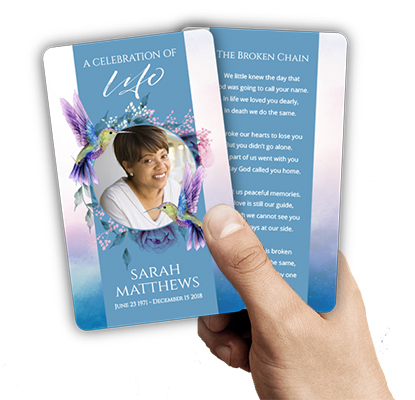
 Memorial Posters
Memorial Posters Guest Books
Guest Books Slide Shows
Slide Shows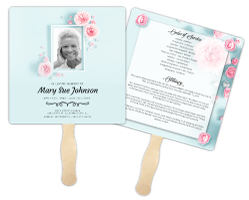 Memorial Fans
Memorial Fans Death Announcements
Death Announcements Take Away Keepsakes
Take Away Keepsakes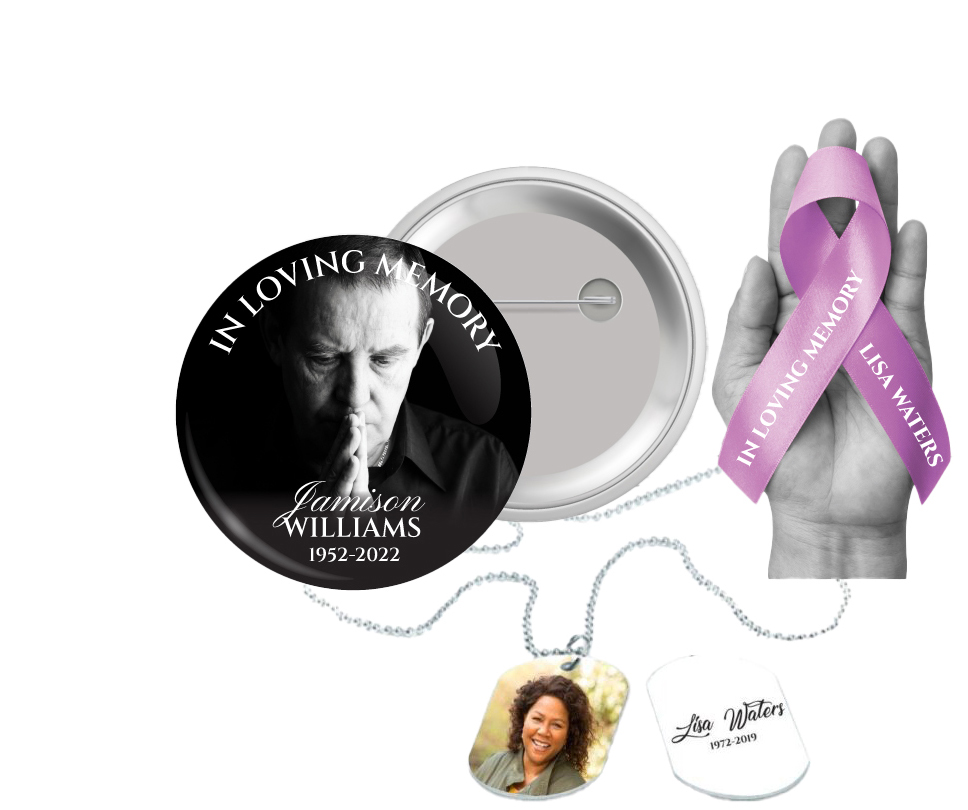
 Church Products
Church Products
